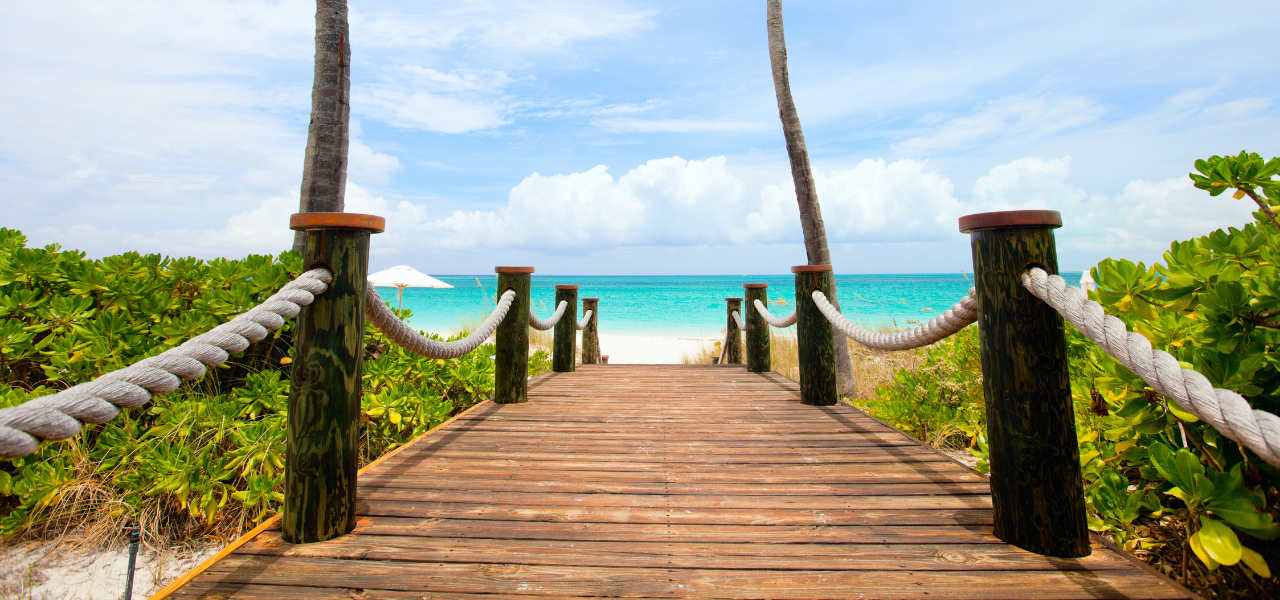Second Passport Options: Citizenship by Investment vs. Naturalisation
For individuals seeking a second passport, there are two primary routes: Citizenship by Investment (CBI) and Traditional Naturalisation. This article explores the essential differences between CBI vs naturalisation, including timelines, residency obligations, integration requirements, and cost. Understanding these citizenship options empowers readers to make an informed decision that suits their goals in securing a second passport.

The country in which a person is born can determine much of their life's trajectory — from the quality of education and healthcare available to their political freedom, economic opportunity, and global mobility. Yet increasingly, legal frameworks now allow individuals to obtain a second passport. For those born in affluent, stable countries, citizenship is a ticket to a lifetime of security and advantage. By contrast, individuals born in developing or unstable nations often face systemic limitations that can stifle personal and professional growth. This arbitrary distribution of opportunity is commonly referred to as the "birthright lottery"—a system in which vast portions of the world’s population are effectively excluded from privileges enjoyed by a global minority.
The concept of dual nationality—once rare—is now widely embraced as a practical means of improving one’s personal and professional future. Whether through citizenship by investment or long-term residency, securing a second passport opens new doors for global mobility, opportunity, and protection. This guide compares the mechanics, benefits, and drawbacks of CBI vs naturalisation to help readers identify the best path for securing their future.
Citizenship is generally granted through several legal frameworks. The most common are:
- Birthright Citizenship (jus soli), which grants nationality based on place of birth;
- Citizenship by Descent (jus sanguinis), based on bloodline;
- Citizenship by Naturalisation, obtained after years of legal residence;
- Citizenship by Marriage, extended to spouses of nationals;
- Citizenship by Exceptional Merit, for individuals recognised for extraordinary contributions;
- Residency by Investment (Golden Visa), which grants legal residency in exchange for economic investment and can lead to citizenship;
- Citizenship by Investment (CBI), granted directly in return for a substantial financial contribution.
Most of the world’s population acquires citizenship at birth through a combination of jus soli and jus sanguinis, and around 98% never change their citizenship status throughout their lifetime. However, pathways like naturalisation and investment-based citizenship are increasingly being used by those seeking mobility, stability, or access to better opportunities.
Naturalisation is essentially the process by which long-term resident immigrants are granted citizenship status, often with additional provisions recognising additional family members through special naturalisation rules. This is not merely an administrative process; it is a strategic form of nation-building. Naturalisation reinforces the host country with an infusion of talent, capital, skills, and diversity. In doing so, it effectively invites the rich, the smart, and the beautiful—often all three at once—to become full participants in the country’s community. These individuals contribute not just with their time and labour, but with ideas, ambition, cultural enrichment, and economic dynamism.
In contrast, Citizenship by Investment enables individuals to acquire citizenship more directly through a substantial economic contribution. This may take the form of a donation to a government development fund, investment in real estate, or funding business enterprises. While debated in some policy circles, these programmes are increasingly seen as strategic levers for economic development and sovereign financing. European countries have largely phased out such programmes, but a group of five Caribbean nations continues to operate robust CBI programmes catering to high-net-worth individuals.
Below is a detailed comparative analysis of Citizenship by Naturalisation and Citizenship by Investment—examining their timelines, requirements, benefits, and appropriateness for various applicant profiles.
UNDERSTANDING THE PATHWAYS
Citizenship by Investment Pathway
- Government Funds: Non-refundable contributions to national development or diversification initiatives.
- Real Estate: Purchase of government-approved property, with a required holding period (typically 3–7 years).
- Business Investment: Investment in local enterprises or start-ups.
Due to EU-level scrutiny and regulatory pressure, most European CBI programmes have been closed. As of 2025, legitimate options remain primarily in the Caribbean. Grenada, St Kitts and Nevis, Antigua and Barbuda, Dominica, and Saint Lucia offer well-established CBI programmes known for their efficiency, relatively low investment thresholds, and visa-free travel benefits. These programmes are generally regarded for maintaining strong due diligence and compliance standards while offering high levels of global mobility.
Overview of the Caribbean CBI Programmes
- Grenada: Offers a minimum donation of US$235,000 or real estate investment starting at US$270,000. Processing time: 4–6 months. Access to 140+ countries, including the UK, Schengen Area, China, India, Russia, and Brazil.
- Antigua and Barbuda: Requires a US$230,000 donation or US$325,000 in real estate. Citizenship granted in 3–4 months. A passport enables travel to 150+ countries.
- St Kitts and Nevis: Donation of US$250,000 or real estate purchase of US$400,000. 4–6 months to obtain citizenship. Travel access to 150+ destinations.
- Dominica: Offers the most cost-effective route at US$200,000. Processing time: 3–4 months. Travel access to 140+ countries.
- Saint Lucia: Requires a US$240,000 donation or a US$300,000 real estate investment. Processing: 4–6 months. Visa-free access to 140+ countries.
Naturalisation Pathway
Traditional naturalisation is the process through which foreign nationals who have resided legally and continuously in a country can acquire citizenship. This process reflects a deeper level of social, cultural, and legal integration, requiring not only physical presence but also active participation in the life of the host country.
Core Requirements in Most Jurisdictions
- A minimum residency period, typically 5–10 years;
- Demonstrable language proficiency;
- Understanding of local laws, customs, and history (often tested);
- Good moral character and a clean criminal record;
- Financial self-sufficiency or stable employment.
Golden visa programmes—which offer residency in exchange for investment—are sometimes used as a route to accelerated naturalisation. However, especially within the European Union, this approach has faced significant legal and political challenges. Malta’s naturalisation pathway via investment, for example, has been declared unlawful under EU law by the European Court of Justice ruling on 29 April 2025.
Examples of Naturalisation Processes by Country
United Kingdom
- Residency: 5 years plus 1 year with Indefinite Leave to Remain.
- Integration: English language proficiency; must pass “Life in the UK” test.
- Dual Citizenship: Permitted.
- Additional: Must intend to reside or maintain ties to the UK.
United States
- Residency: 5 years as a Green Card holder (or 3 if married to a U.S. citizen).
- Integration: Must pass English and U.S. civics exams.
- Physical Presence: 30 months minimum within the U.S.
- Dual Citizenship: Allowed but unofficially discouraged.
- Oath: Required.
Canada
- Residency: 3 of the last 5 years as a permanent resident.
- Integration: Citizenship test and language proficiency (English/French).
- Dual Citizenship: Permitted.
- Other: Offers extensive social benefits and mobility rights.
Germany
- Residency: Typically 8 years (6 with strong integration).
- Integration: B1-level German and an integration test required.
- Dual Citizenship: Generally not allowed except under EU or special cases.
- Other: Must show financial independence and good conduct.
Comparison of CBI vs. Naturalisation
Both Citizenship by Investment and Traditional Naturalisation offer pathways to second citizenship, but they cater to fundamentally different needs and timelines. The table below summarises key differences:

What Is the Easiest Way to Get a Second Passport?
The fastest and least burdensome route to a second passport is almost always through a CBI programme. The Caribbean citizenship routes are particularly attractive to investors, entrepreneurs, and remote professionals seeking to enhance global mobility without altering their day-to-day lives. However, they come at a financial cost, with required donations or investments ranging from US$200,000 to over US$400,000, depending on the jurisdiction and investment type.
Who Should Choose What?
- CBI is ideal for individuals seeking a fast-track second passport, particularly global entrepreneurs and high-net-worth individuals.
- Naturalisation is best for migrants, students, and long-term residents who plan to embed themselves fully into a new culture and society.
Regardless of the route chosen, understanding CBI vs naturalisation is essential for those exploring modern citizenship options.
FINAL THOUGHTS
Choosing the right pathway to a second passport is a life-altering decision, driven by individual priorities: speed, cost, mobility, or sense of belonging. While citizenship by investment offers rapid access and minimal disruption, traditional naturalisation builds deeper roots and legal permanence. Whichever path you take, it’s vital to evaluate your lifestyle, risk tolerance, and long-term goals. With a clear grasp of CBI vs naturalisation, you'll be well-equipped to navigate today’s global citizenship landscape. Let us guide you through the most suitable CBI programme in the Caribbean — simply fill out our Contact Us form or send us a message on WhatsApp. and one of our experts will get back to you promptly.
.png)
Is Citizenship by Investment legal?
Yes, CBI programmes are legally established by national legislation. While controversial in some jurisdictions, they are recognised as legitimate by countries that operate them and by international investment migration frameworks. Caribbean nations, in particular, operate well-regulated and transparent CBI schemes.
Do I need to live in the country to keep CBI citizenship?
In most Caribbean CBI countries, no residency is required. However, some require minimal visits or administrative renewals.
Can I pass CBI citizenship on to my children?
Yes, CBI citizenship is typically hereditary and can be passed onto future generations.
Is naturalisation reversible?
Naturalised citizenship can be revoked under specific legal grounds (e.g., fraud during application), but generally offers strong permanence once granted.
Can I have more than one passport legally?
Yes, many countries allow dual nationality. However, some may require you to renounce prior citizenship, so always consult local laws.





.svg)





.png)





.png)





.png)





.png)





.png)





.png)


